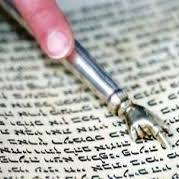Parshot/Festivals
Lashon tov – good speech
In this parsha we are taught that slander – lashon hara” – is not only when speaking evil against a person but also finding fault in the land itself. The fruit of Israel was not normal, the people were giants and the land consumed its inhabitants.

Rabbi Siggy Suchard
Sandton Shul
To speak evil about a person is recognised as a bad characteristic. At many funerals one hears the praise of the departed, that he or she never had a bad word to say about somebody. This is a remarkable trait. We all remember Pinocchio the wooden puppet whose nose grew long when he spoke ill of people.
The Torah dedicates two entire portions dealing with a type of leprosy which results from “lashon hara”. The Torah uses the word “metzorah” – leprosy – which we read as “One who gives a bad talk” about someone. It can harm relationships, break up families and cause people to lose finances.
There is a true story about the Reshash, a great Talmudic scholar who was also wealthy. People came to him for loans which they readily repaid. A poor person borrowed a large sum of money from his business. After three months he knocked on the rav’s door with the loan in a packet.
The rav was immersed in his learning. The tailor gave the envelope to the rav who did not look up. He was so immersed in his Gemarah and left the money in the Gamarah.
After the time set for the tailor to pay, he was asked to do so by the Beth Din, where he told the rav that he had paid the debt.
The people of the village spoke ill of him, which caused him to find a job in another town.
A year later the rav was learning the same Gemarah and found the envelope. He was shocked and looked for the tailor. The only way he could console the tailor was to take the tailor’s son as his son-in law. Talk is so dangerous.
I would like to coin a new saying: Instead of being careful of “lashon hara” one should talk “lashon tov” – to speak good of people.
Look for good attributes in a person, see that there are points about the person which one can acclaim, and give him or her redeeming characteristics.
In the Torah we find that Noach was called by Hashem, righteous and perfect. Although Noach did not save his generation and was not as Avraham, he was praised by G-d, as being righteous and perfect.
In Pirkei Avoth (2:13) the pupils of Rabbi Yochanan ben Zadok were asked what is the good way that a person should cling to. Rabbi Joshua said a good friend, Rabbi Yossi said a good neighbour, Rabbi Eliezer’s dictum was a good eye.
I believe that this is what a good eye means in the Pirkei Avot when his pupils were told to find the good traits par excellence.
A good eye means to see the good in another.
We know from the Torah that the reward of doing good is five hundred times more than evil.
“Lashon tov” – a good tongue – can bring about so much love and powerful energy about Hashem’s salvation. During the period of Sefirah, the pupils of Rabbi Akiva died. The Talmud gives as the reason that they did not conduct themselves with their peers in an honourable fashion. They did not honour each other.
They did not honour each other with a good eye, to recognise their peers’ good traits.
If we concentrate on “good speech”, then we will not bad mouth neither people nor the land.
Anton
June 11, 2015 at 2:22 pm
‘Thanks for this information on Lashon tov – good speech’